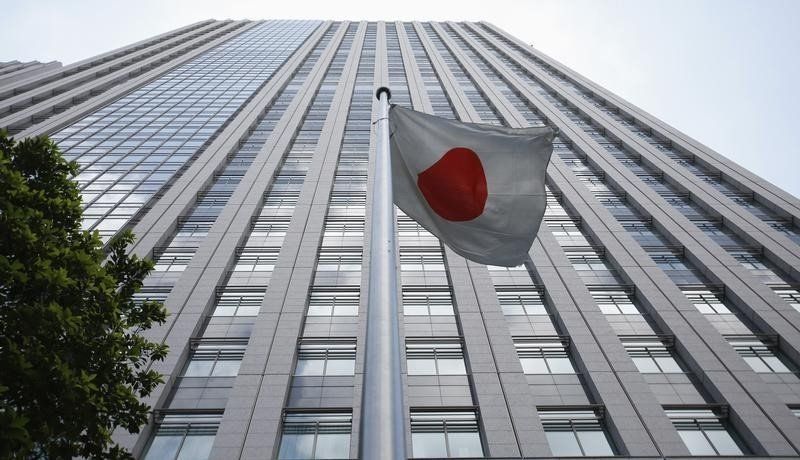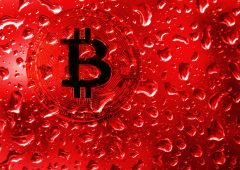Bank of Japan Sticks to Easing Policy Despite Global Economic Challenges
08.08.2024 10:00 1 min. read Alexander Stefanov
The Bank of Japan (BoJ) has decided to keep its monetary policy unchanged, avoiding both rate hikes and cuts.
Deputy Governor Shinichi Uchida stated that maintaining the status quo is essential given the current market instability.
While other central banks, such as those in the US and Europe, are raising interest rates, Japan is opting for a different approach. Uchida emphasized that Japan will continue its cautious monetary easing to avoid worsening market conditions.
Global market uncertainties, including recent declines in stock prices and currency fluctuations, have influenced this decision. Uchida highlighted that the yen has experienced significant volatility, impacting corporate and consumer behavior.
Despite global challenges, Uchida is optimistic about Japan’s economic recovery. He sees a “soft landing” for the US economy, which is crucial for Japan given their economic ties. Uchida also praised Japan’s improving corporate earnings and expects the economy to grow steadily.
Looking ahead, the BoJ plans to reduce its bond-buying program to ¥3 trillion per month by early 2026 but remains ready to adjust policies if necessary. Analysts are divided on the BoJ’s future moves. Some foresee potential rate increases later this year, while others expect a gradual approach, possibly reaching a 1% rate by 2028, with concerns about inflation and wage stability shaping these predictions.
-
1
Billionaire Slams Meme Stock Hype and Sounds Alarm on U.S. Fiscal Health
15.06.2025 18:00 2 min. read -
2
Robert Kiyosaki Predicts 2025 “Super-Crash,” Urges Hoarding Gold, Silver, and Bitcoin
23.06.2025 13:31 2 min. read -
3
Billionaire Investor Sees Dollar Crash If Key Support Breaks
18.06.2025 15:00 1 min. read -
4
Nassim Taleb Says Global Trust Is Shifting from the Dollar to Gold
22.06.2025 17:00 1 min. read -
5
U.S. Recession May Already Be Locked In, Economist Warns
23.06.2025 12:00 1 min. read
What Brian Armstrong’s New Stats Reveal About Institutional Crypto Growth
Coinbase CEO Brian Armstrong has spotlighted a significant acceleration in institutional crypto adoption, driven largely by the surging popularity of exchange-traded funds and increased use of Coinbase Prime among major corporations.
What Will Happen With the Stock Market if Trump Reshapes the Fed?
Jefferies chief market strategist David Zervos believes an upcoming power shift at the Federal Reserve could benefit U.S. equity markets.
U.S. Bank Advises Clients to Drop These Cryptocurrencies
Anchorage Digital, a federally chartered crypto custody bank, is urging its institutional clients to move away from major stablecoins like USDC, Agora USD (AUSD), and Usual USD (USD0), recommending instead a shift to the Global Dollar (USDG) — a stablecoin issued by Paxos and backed by a consortium that includes Anchorage itself.
Vitalik Buterin Warns Digital ID Projects Could End Pseudonymity
Ethereum co-founder Vitalik Buterin has voiced concerns over the rise of zero-knowledge (ZK) digital identity projects, specifically warning that systems like World — formerly Worldcoin and backed by OpenAI’s Sam Altman — could undermine pseudonymity in the digital world.
-
1
Billionaire Slams Meme Stock Hype and Sounds Alarm on U.S. Fiscal Health
15.06.2025 18:00 2 min. read -
2
Robert Kiyosaki Predicts 2025 “Super-Crash,” Urges Hoarding Gold, Silver, and Bitcoin
23.06.2025 13:31 2 min. read -
3
Billionaire Investor Sees Dollar Crash If Key Support Breaks
18.06.2025 15:00 1 min. read -
4
Nassim Taleb Says Global Trust Is Shifting from the Dollar to Gold
22.06.2025 17:00 1 min. read -
5
U.S. Recession May Already Be Locked In, Economist Warns
23.06.2025 12:00 1 min. read


